
Introduction
Charles Freeman is a scholar of the ancient world, perhaps best known for his books Egypt, Greece and Rome: Civilizations of the Ancient Mediterranean (first edition 1996) and The Closing of the Western Mind: The Rise of Faith and the Fall of Reason (2003). The latter argued that the rise of an enforced Christian orthodoxy in the fourth century shut down a millennia-long Greek tradition that prized open-mindedness, argument, and freethought.
I recently met with Freeman over Zoom, both of us appropriately sipping a glass of wine, to discuss his life and work. In particular, we discussed his new book The Children of Athena, which explores, through portraits of major thinkers from the historian Polybius (c.200-c.118 BC) to the mathematician Hypatia (c. AD 355-415), how the Greek intellectual tradition continued to thrive under the Roman Empire until the coming of Christian orthodoxy. Below is an edited transcript along with some audio extracts from our conversation.
Interview
Freethinker: In various of your books, you make mention of your own engagement, throughout your life, with the classical world. So how did this lifelong fascination start?
Charles Freeman: Well, I was at one of the traditional public schools where they did more classics than anything else. We read Homer, Thucydides, Herodotus and the playwrights in the original Greek, so I got some idea of the real versatility and curiosity of the Greek mind, and I much preferred it to Latin. I found the Greek mind much more interesting. I loved the literature and the curiosity about the world that you see, for instance, in the Greek playwrights of the fifth century BC. So it always lingered in the back of my mind that the Greek mind was something special.
When I got a place at Cambridge, I was going to do history. But my father, who was ex-army and struggled as a farmer, said that we did not have much money. My great-great grandfather was a top classicist at Cambridge and one of my great uncles, who died very young, was also a top classicist, so there was a classical tradition in the family. But we were a slightly impoverished family with a very traditional English background, so my father said I was better off with a degree in law because that would make me some money.
And you rebelled against this, presumably?
I think that over the time that I studied law at Cambridge I actually read more history books than law books! I got very bored with the law. I mean, you really have to master the law, and you are not going to be able to change it unless you become prime minister! And I realized by the end of my time in Cambridge that I would never become a lawyer.
But as a present to me for deciding to do law, my father had arranged for me to go to Rome for six months, and I worked like a slave at the British School there. My first job was mending Etruscan pottery and then I was allowed to go out onto excavations and so on [more in the audio extract above]. I was keen on archaeology, but I realised that I was much too harum-scarum to ever be an archaeologist. I noticed that the good archaeologists always had their trenches absolutely neat and tidy, and my trenches were a bit of a muddle.
After I left Cambridge, I went out to teach in Sudan. I did not know what to do in life, like so many people after university, but I did work on one of the sites on the Nile during my Christmas holidays at the ancient site of Meroë. I had also dug at Knidos, which was a Greek city in what is now in Turkey.
So I kept all of this experience at the back of my mind, but then I became a normal history teacher and I ended up working with the International Baccalaureate, which was just beginning in the late 1970s. I worked for 10 years at a sixth-form college in Oxford. And so I was working with modern history.
I finally got a job as chief writer on a 12-volume world history, which enabled me to go back to my interest in the ancient world. The whole project eventually collapsed, but I was able to publish my sections on ancient Egypt, Greece and Rome as a single book for Oxford University Press. That gave me an academic basis from which to study the ancient world, and I have been working on that ever since, writing all kinds of books about it. In the early 2000s, I also began conducting my own tours of ancient sites, and I have kept that up, too.
How did you come to write ‘The Closing of the Western Mind’?
After I had written a book called The Greek Achievement in 1999, I decided that I wanted to write about the Greeks under the Roman Empire. I was fascinated by what actually happened to Greek philosophy when it came up against Christianity. And the end result of that was Closing, which made my name as a slightly alternative, freethinking author.
Your interest is in cultural and intellectual history, as opposed to kings and queens and battles. Why does that fascinate you so much?
I have always been interested in ideas and the way that ideas develop through history, and which ideas are taken up and which are rejected. This was embedded in me by my work with the International Baccalaureate, because there is a compulsory part of the curriculum called ‘Theory of Knowledge’. It is a course in critical thinking, with philosophical underpinnings, and I taught it for 10 years. I got very fascinated by it, and then I was asked to be an examiner, where we set questions based on the whole range of intellectual disciplines. I worked with brilliant minds from all over the world, and we came from all different kinds of disciplines, and I think that embedded the interest in ideas and critical thinking in my mind. I think that has enriched my approach to academic work, too.
That sounds rather similar to the ancient Greek tradition you have written so much about, with its commitment to open-ended enquiry and its great breadth.
Very much so. With my new book The Children of Athena, I have been able to explore all the different ways in which the Greek mind worked. Having had a very solid, traditional education, these Greek thinkers had a good foundation for very clear thinking, and for very diverse forms of thinking, which is really attractive to me.
Before we discuss your new book in more depth, can you talk a little about ‘Closing’ and your 2020 sequel of sorts, ‘The Awakening’ (published in the US as ‘The Reopening of the Western Mind’)?
Closing was concerned with the openness of the Greek mind, its versatility and curiosity, not only through the classical period but through the great Hellenistic period when figures like Archimedes and Hipparchus were flourishing. There were two main strands of Greek philosophy, one inspired by Aristotle’s fascination with the natural world and one inspired by Plato’s focus on the immaterial world, which he saw as being the ultimate reality. I argued that Platonic thought was integrated within the Christian tradition while Aristotle was forgotten until he came back into the university in the medieval period.
And in ‘Closing’, you argue that this Greek intellectual tradition was stifled by the emergence, from the fourth century onwards, of an enforced Christian orthodoxy. Do you think some of your critics misconstrued this as rehashing the now unfashionable idea that antiquity was followed by an age of darkness and ignorance?
I think the title is a good title, but it comes across quite strongly, which might be a reason for that misunderstanding. In The Awakening, I made a point of addressing the very traditional debate between the view that the medieval period was one of innovation versus the idea that it was an age of darkness. I think I was quite fair. I was determined in The Awakening to give full chapters on the medieval university, medieval philosophy, and medieval science, to really explore those in depth, so that I was not vulnerable to critics who might say I was leaping straight from antiquity to the Renaissance and ignoring medieval achievements.
What do you make of historians like Tom Holland, who in his 2019 book ‘Dominion: The Making of the Western Mind’, argued that Christianity essentially made the modern world?
One of the frustrating things about Dominion is that it does not mention the emperor Theodosius and his Council of Constantinople of 381, which fully declared the Trinity, and basically that said everybody who disagreed with its formulation of Christianity were ‘demented heretics’. This made Christianity into an authoritarian religion allied with the imperial Roman state. And it has continued as such ever since! We still have 26 bishops in the House of Lords, and throughout history, they have always been forces for conservatism.
I wrote a book in 2009 called AD 381 because I saw that year as a turning point in European history. This was when Christianity became an authoritarian and conservative religion and when the revolutionary aspects you can find in the Gospels were abandoned. You can see a resurgence of those radical ideas in the seventeenth century, with the birth of the Quakers and other radical Christian sects during the English Civil War. You could also see that in early Christianity, but that tradition was destroyed in the fourth century.
Holland is a distinguished classicist and a very good writer but in Dominion he completely missed the way in which Christianity was integrated into the authoritarian setup of the Roman Empire and how it developed very conservative, authoritarian views. Christianity became a very conservative force in a way that it did not need to be. Christianity was shaped by political and historical forces and could have taken a different path, as shown by the Quakers, who went back to the more radical, earlier forms of Christianity.
What other alternative Christianities could there have been?
I also do feel that I am very heavily criticised for this view, but Augustine had far too much influence. I am an Origen man. Origen, a theologian of the third century, was a sophisticated biblical scholar who thought Greek philosophy could be brought into Christianity. He also disbelieved in eternal punishment. And that is another problem I have with Holland’s book: he writes a very effusive defence of Origen but does not discuss Origen’s theology in great depth. And then later, he very briefly mentions that Origen was declared heretical when the Trinity was proclaimed in 381!
Surely Holland should have probed what heresy meant and discussed why one of the greatest Christian intellectuals was declared a heretic. I felt that Holland did not in any serious way probe into the many problems of Christianity. As it happens, I have been thinking of writing a book called Europe and Christianity: The History of a Troubled Relationship. That is quite a good title, I think. It would, among other things, look at the conflicts between medieval states and the papacy.
The big ethical issue about Christianity is the ethics of exclusion. Jews, Muslims, pagans—you are either in or you are out. And Holland should have probed this more deeply. Why was Origen, one of Christianity’s best sales agents, declared heretical?
Holland might have it that Christianity was a great vehicle for universalism, in that it declared us all to be made in the image of God. But of course, as you say, there are the saved and the damned, which is almost the entire point of Christianity.
Yes, and so you have the problem of Calvinism and the predestination issue. Do you know whether you are saved or not? And then you have the problem with original sin.
Desiderius Erasmus, the great Renaissance scholar, said that he got more out of reading one page of Origen than he did reading ten pages of Augustine. I think that says a lot. Erasmus is one of my heroes. He is so broad-minded. And Martin Luther, when he heard of his death, said that Erasmus was going to hell! The Catholic Church put Erasmus’s works on the Index of Prohibited Books and there is still that very traditional Catholic argument that Erasmus caused the Reformation, which is, of course, not true. There were many other factors which made the Church vulnerable to a reformer who could articulate an alternative theology.
To go back to Holland, perhaps the main problem with his thesis is that he seems to believe that there is just one version of Christianity, and it is the version that happens to align with modern values and that everything else was just an aberration, not ‘true’ Christianity.
Yes. Christianity, for example, buttressed the apartheid regime in South Africa. The Nazis had a Christian church. And, as I said, there were radical Christianities, like the Quakers. So Christianity could be interpreted in every kind of political context.
That sounds similar to the problem with theology that you outline in ‘Closing’, namely that there is an endless proliferation of interpretations in Christianity because there is no rational foundation or agreed-upon set of first principles from which to build. That is why both the defenders and the opponents of slavery in the American South could claim, with equal justification, that God was on their side.
Michael Taylor has written a very good book calledThe Interest: How the British Establishment Resisted the Abolition of Slavery, which discusses the Christian, biblical sources used by the defenders of slavery. He stresses how much the Christian churches were in favour of slavery. Remember that it was the Pope who granted the Portuguese the right to enslave Africans back in the fifteenth century. So slavery starts off with a Catholic imprimatur, if you like. Of course, Protestants defended slavery too, even though we hear more about the Christian abolitionists these days.
Moving on to your new book, ‘The Children of Athena’, how does it relate to your previous work?
The book is about how the Greek mind was fertile and intellectually diverse for centuries under the Roman Empire. There was no dogmatism, no sacred canon, no absolutely authoritative texts, no non-negotiable doctrines. All that came in with Christianity. I think the intelligent reader will pick up that theme right at the end of the book, but I did not want to preach. I just wanted to show that the Greek mind was fertile right to the very end.
I have been criticised by some conservative Christians in the past, who say that the Greek mind was stagnant by this period, and that Christianity came along and saved it. So I am trying to argue, in Athena, against that view, without preaching, to show that the Greek mind was alive and well in the period up to the early fifth century.
In the book, you say that Plutarch (c.AD 46—after AD 119) is probably the most appealing of the thinkers you discuss. Why?
I would have loved to have had a landed estate next to Plutarch’s! I would like to have been able to wander over in the cool of the evening for a glass of wine with him. He is a wonderful mind, because he is not only a philosopher, but also a very good historian, and he is very penetrating on the individuals that he includes in his Parallel Lives. He is also a very good practical philosopher, on things like how to control anger and what values you should express in public life. He says that you must be humble and that you must sort out your personality before you enter public life, which is something that I think is still relevant today.
Here is a telling story. Plutarch was far from home when he heard of his young daughter’s death, and he wrote a very moving letter to his wife, a very humane letter, which should be much better known than it is. It shows what a sensitive individual he was, quite apart from being a philosopher and historian. He is my favourite of the figures I discuss in the book.
How did you choose which figures to include in the book?
They were all intellectuals. And the idea was to show the diversity of the figures that I covered. And I obviously had to choose individuals whose material was relatively extant, so that I could get a sense of how they thought and what they achieved. Strabo the geographer (c. 63 BC—c. AD 25) and Dioscorides the botanist (c. AD 40—c. 90), for instance, left behind a lot of material that still survives. And Galen (AD 129—216), of course, the top physician of his day, also left behind an enormous amount of work. The figures I discuss argued for their own place, really, because of what we know about them and the legacy they left behind, which I discuss in a chapter called ‘Afterlives’ at the end of the book.
You include a lot of information on the world these thinkers inhabited, particularly its physicality. How important was this to you?
I think quite important. Particularly for Athens, which I know well. I have been to Sagalassos [an ancient Greek city in modern-day Turkey], the city that I describe in one of the book’s interludes, two or three times, and it is a wonderful site that has been beautifully excavated by the University of Leuven. I also know Aphrodisias with its ancient Sebasteion temple, having visited it three or four times. I have also led tours around the Peloponnese and southwestern Turkey, so I have a good feel for the sites.
The Greeks were wonderful at choosing sites for settlement. Sites had to be close to fertile land and sources of water. The Romans put aqueducts up in many Greek cities, too, so the Greeks and Romans collaborated. In the book, I quote Strabo’s statement that the Greeks chose wonderful sites, while the Romans came and put in pavements and sewers and so on. Basically, all the dirty work!
One of your subjects is the second-century travel writer Pausanias, who is a great source for understanding the sites of the ancient world.
Yes. I think he’s increasingly respected now. He was considered rather pedantic once upon a time, but the more excavations go on, the more they actually find out that he was accurate and that therefore he should be relied on as a guide.
Another figure you discuss is Lucian of Samosata, the fearless second-century satirist whose anti-religious works led to him being mostly disregarded until the Renaissance. Tell us more about him.
An enormous amount of Lucian has survived because he has been very popular throughout the ages. Erasmus was a great fan of his, as were the Renaissance humanists in general, who were much more relaxed about using classical sources than had been the case previously. In the Renaissance, people like Boccaccio, who also admired Lucian, got away from the strict Catholic tradition of dismissing heretics and pagans. They were much more relaxed during the Renaissance.
Who else among your subjects really stands out to you?
Well, my editor particularly liked my chapter on Dioscorides, the botanist, because he had cures for all sorts of ailments.
Then there is Epictetus, the first and second century Stoic philosopher. My son is a psychologist who works in Los Angeles with the meditation app Headspace, and Epictetus could be read today as a guide to mindfulness. So I put my son on to Epictetus!
Ptolemy, the second century astronomer and mathematician, was brilliant. He had quite an extraordinary mind.
Galen, of course, is the top doctor. He understood nerves and pulses [see audio extract, left, for more]. He was well ahead of his time, but very arrogant. He certainly would not have been a nice chap to meet, but if you had an illness, he was the man to go to.
I quite enjoy Plotinus, the third century philosopher. He is quite difficult to understand, but he was certainly a prominent intellectual. His idea of the One influenced Augustine quite a lot.
The theologian Clement of Alexandria (c.AD 150—c.215) wrote beautifully and had a more optimistic outlook on Christianity. Origen, of course, was a brilliant intellectual, and I am pleased to see that he is coming back into favour.
Themistius, the fourth century court orator, always survived. Whenever a new emperor came along, he would say, thank goodness we have you now, the last one was hopeless. And then that emperor died and he would say the same to the next one!
So I think all of the figures I write about have something to say for themselves.
One of the unfortunate things about people like Galen was that as Christian orthodoxy became more rigid, they were frozen into place as absolute authorities. That happened to Aristotle eventually, too. And the open-minded, questioning, empirical method of these thinkers was almost forgotten. Do you think that today, something similar is going on with the narrowing of public discourse? Can we learn from the Greek tradition once more?
Yes, I think it is true that people are very quickly pigeonholed. The breadth of intellectual thought has diminished. We are in a narrower world. I think part of it is that people do not have enough time to read. I come from a tradition where it is assumed that you read widely, and I am not sure people read as widely as they used to. Partly because they do not have the leisure to do so. But there has also been a narrowing of political discourse.
How do you deal with critics of your work?
I noticed with the reception of my book The Closing of the Western Mind that people were open to the arguments, and I do not mind critical reviews that are thoughtful and make good points when disagreeing with me, but I have had one or two reviewers who have not really grasped the ideas behind the book and so they were not able to criticise it effectively.
Is there less tolerance these days?
My wife and I were just talking about this. She asked me if I was able to talk freely during this interview, and I said that the things I talk about are not really difficult topics. But yes, we were discussing what you cannot talk about now.
A couple of quick-fire questions as we approach the end of this interview. First, Plato or Aristotle?
Aristotle, because he saw the beauty in living things.
And second, Athens or Jerusalem?
Athens. I think you know that!
To finish off, do you have any future projects in the works?
I think I will see how The Children of Athena goes. I am beginning to run out of ideas, I think. I feel that I have done a good corpus of books, so we shall see. I am very happy with the range of books I have written. Even if I never wrote another book, I have completed a whole corpus of interlocking books which say what I wanted to say. But I always have ideas bubbling up in my head.


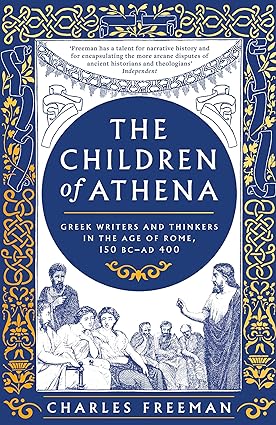
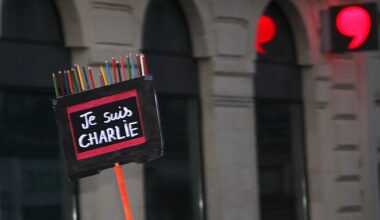
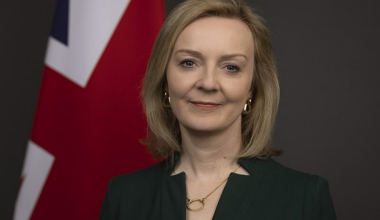
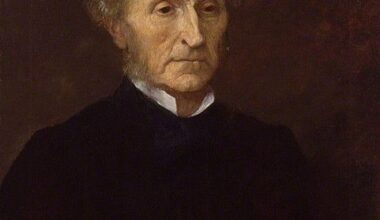
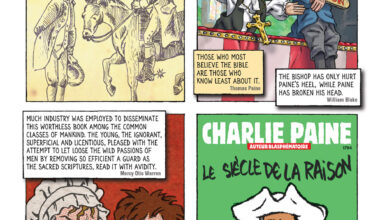
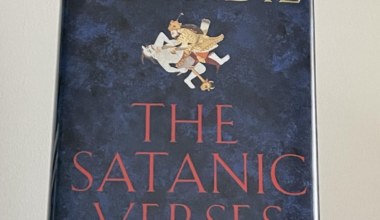

1 comment
Jonathan Sacks published one book I read in which his hostility towards Greek philosophy was visceral and – I thought – utterly dishonest.
I am not alone in this observation.
See – as just one example – https://www.philosophyforlife.org/blog/rabbi-sacks-is-too-harsh-on-greek-philosophy
I enjoyed reading the above Charles Freeman article.
I think he is right about the way in which medieval religionism led to a substantial decline in open-minded thinking and reasoning.
Your email address will not be published. Comments are subject to our Community Guidelines. Required fields are marked *
Donate